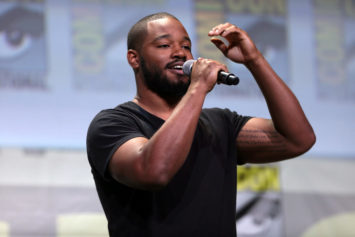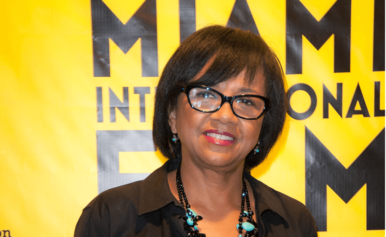
Under the new rules, voting status for Academy members will depend on whether or not those members have been active in the film industry in the last 10 years. Members who do not meet that criterion or have not received an Oscar nomination or award will be stripped of their voting status and unable to select Academy Award nominees.
Presumably, this measure will cut down the number of older white male voters and concentrate the voting power in the hands of members who are a part of the current film scene and more connected to today’s social climate.
For some longstanding members of the Academy, these solutions are misguided. Milton Justice, an Oscar-winning director and producer, felt compelled to speak up for the interests of those members. Despite the fact that Justice receives lifetime voting status under the new rules due to his Oscar wins, he wrote a guest column for The Hollywood Reporter lambasting the Academy’s changes as an insult to Black people and discrimination against the aged.
“What bothers me most is how insulting this is to Black people,” he writes. Oh, boy. That alone is enough to pause for processing as those words are destined to be followed by something far more insulting to Black people.
Justice continues:
“I’m also shocked at the presumption of the president of the Academy to meet with David Oyelowo to explain to him ‘what went wrong’ because he wasn’t nominated last year for his portrayal of Dr. Martin Luther King Jr. in Selma. I’m sorry, but are we missing the 800-pound gorilla in the room? Maybe there weren’t enough actors in the actors branch who thought he was good enough to be nominated. I’m not in the actors branch, but I certainly didn’t think he was very good in the part. In fact, when I got home, I pulled up the “I Have a Dream” speech on YouTube to show one of my young students how charismatic Dr. King was, since it certainly didn’t come through in the film.”
Yep — more insulting. Justice ridicules Isaacs, an African-American woman, for having the decency and respect to personally inform Oyelowo that his critically-acclaimed portrayal of Dr. King wouldn’t be recognized last year.
He then justifies the lack of nominations for Oyelowo by insulting his performance of America’s foremost civil rights leader. It’s obvious that not enough white members of the Academy felt the performance deserved a nomination, but isn’t that the entire reason the Academy has enacted its changes? The perspective of oh, I don’t know, anybody else was hardly represented.
But, Justice is just getting started. If you liked his comments on Oyelowo’s MLK performance in Selma, you’re going to love his remarks about the film and its director. According to Justice, the Selma snub was no big mystery, actually. The film was just bad, as it turns out, and no one wanted to tell the Black woman who made it because they just didn’t want to hurt her fragile feelings. It couldn’t have been that people genuinely liked the film and felt it was well-directed. They were all just too scared to speak up, but not Milton Justice.
He gives it to us straight.
“And, on another note,” he starts. “Apparently, everyone is afraid to tell Ava DuVernay that it wasn’t a very good film and that is why she was not nominated. It had nothing to do with her either being black or a woman. It was badly shot — really badly shot,” Justice asserts.
There’s no underlying prejudice here, people. As we all know, the Academy is usually so good about recognizing Black female directors.
Justice later expresses his bewilderment at how increasing diversity within the Academy could possibly be helpful to Black actors and filmmakers, saying “If there were more black actors in the Academy, would that have assured David Oyelowo’s nomination? Would it have assured more black nominees this year? Do black people only vote for black people? Did I vote for Sean Penn in Milk because I’m gay?! The whole idea is both insulting to blacks and to the Academy members who presumably vote on artistic merit.”
Quick! Somebody explain to old Milton how this diversity thing works! The entire purpose is to ensure that various voices and perspectives are represented at the Oscars, knowing that as much as Justice might want to believe it, the older white male point-of-view doesn’t exactly paint the most accurate picture of how other races are thinking and feeling. Surely, white men do not hold the monopoly on evaluating merit. If, by Justice’s own admission, Blacks aren’t simply going to vote for Blacks and gays don’t simply vote for gays, why should there be an issue with adding more of these voices to the Academy?
If we can trust the older, whiter crowd to vote on merit, why can’t we trust Blacks to do the same? It’s called “inclusion,” and it’s unlikely that it insults most Black people, contrary to what Justice assumes. In fact, I’m willing to bet there are far more insulting things to Black people — and not just Justice’s comments on DuVernay, Isaacs and Oyelowo.
What’s insulting is that there have been zero Black people nominated in the major categories at the Oscars for two years in a row. What’s insulting is having the critically acclaimed work of Black artists ignored by the Academy while the critically acclaimed work of white artists is all but guaranteed to be acknowledged. What’s insulting is having to boycott and protest to have your existence validated by the movie industry while your money accounts for 40% of movie ticket sales. What’s insulting is for a wealthy Caucasian male to presume that he has even the slightest idea of what’s insulting to Black people.
But Milton’s no racist. No, sir. He thinks Sidney Poitier was “remarkable” in Lilies of the Field and Forest Whitaker is “one of the greatest actors alive.” Milton’s an acting teacher. He’s sure to name-drop that one of his pupils is Mark Ruffalo, who is nominated for Best Supporting Actor at the Academy Awards this year (but he forgets to mention that Ruffalo has been a vocal supporter of the Oscars boycott and the Academy’s diversity action — go figure). Justice proudly admits that he shows Whitaker’s film The Last King of Scotland to his acting students, and he knows for a fact that skin color had nothing to do with Whitaker’s Best Actor win in 2007.
Justice isn’t a racist, but he may be something worse — blind. Justice is the type of person who refuses to see that racial disparities exist in a system that may not be overtly racist in its present state but one that nonetheless was born in an era of staunch racism, and, therefore, has racism inherent in its inner-workings. He is the type of person who ignorantly believes that racism is a thing of the past because America elected a Black man as president, and equates Blacks in the film industry crying out for equality with his own “self-pity” for not being able to make a “passion project.”
Milton Justice’s outrage was never about the Academy’s new rules being insulting to Blacks. It was always about the rules insulting the Academy’s aged white members. It was about the Academy being forced to change and the threat change poses to white privilege. That’s just how it is. Change is an uncomfortable thing, but it must be faced even if it insults a few people along the way.


